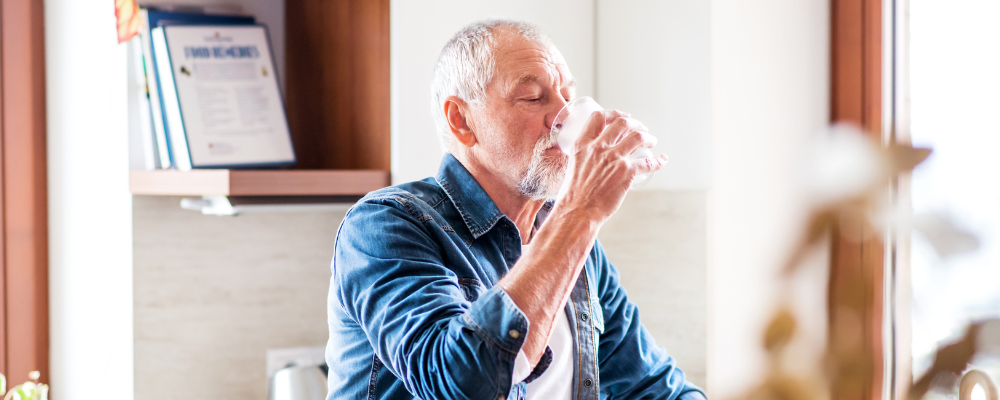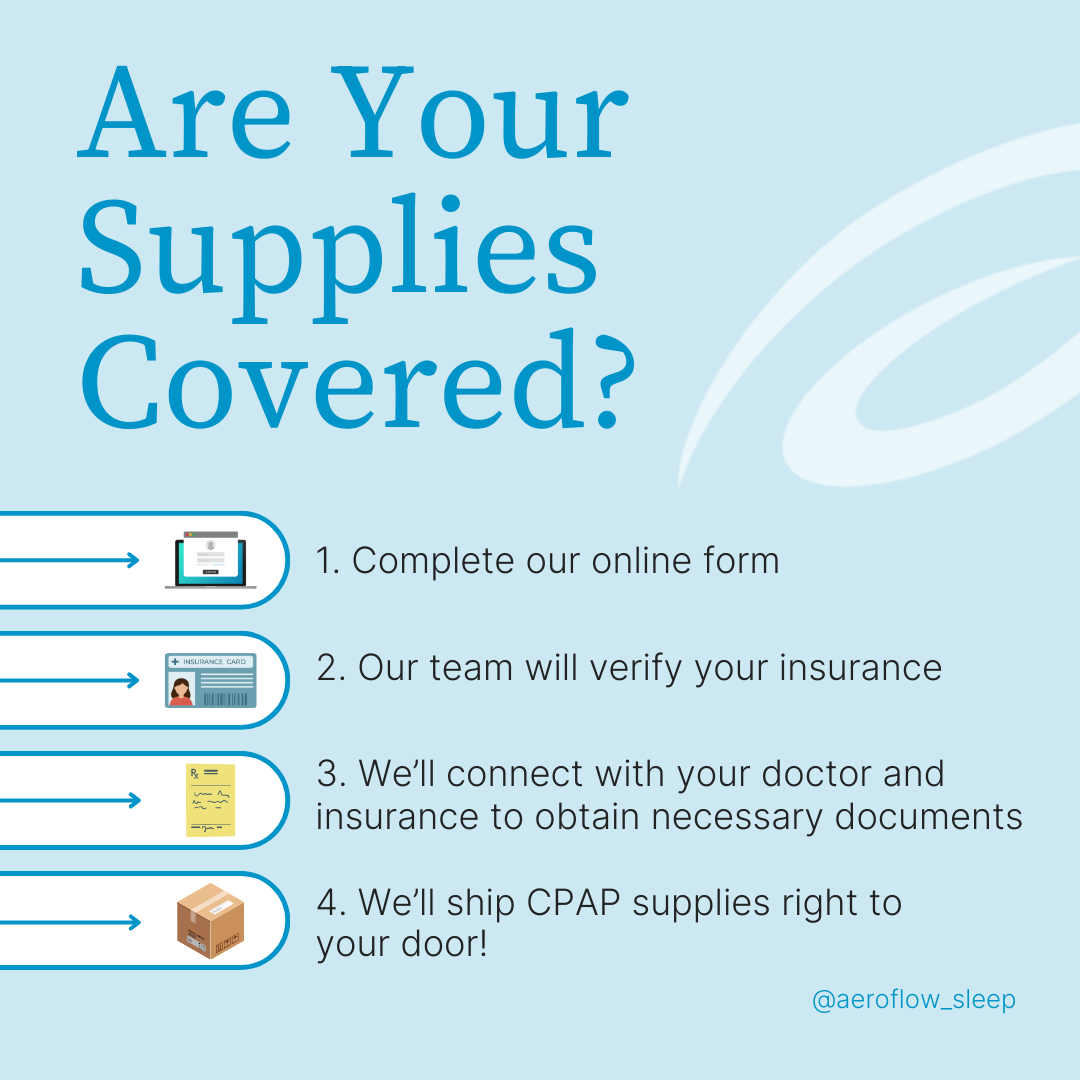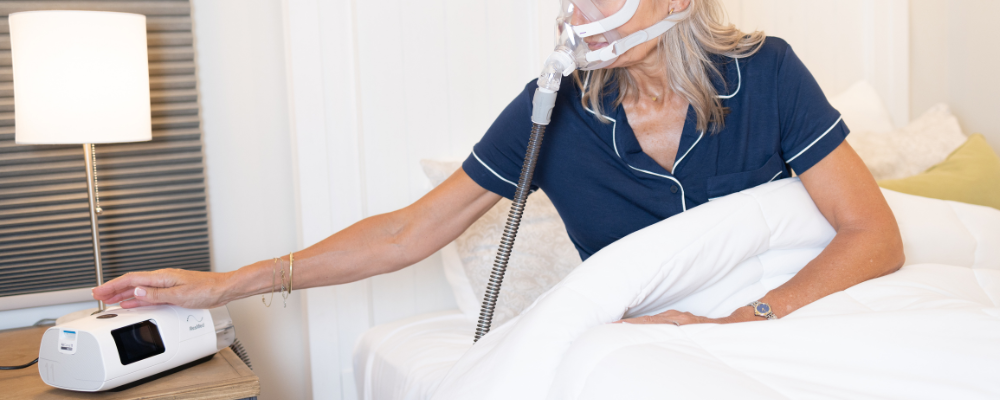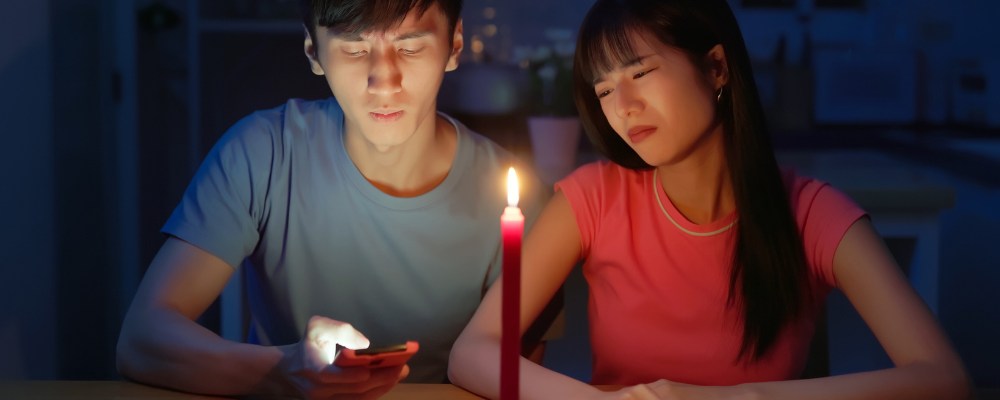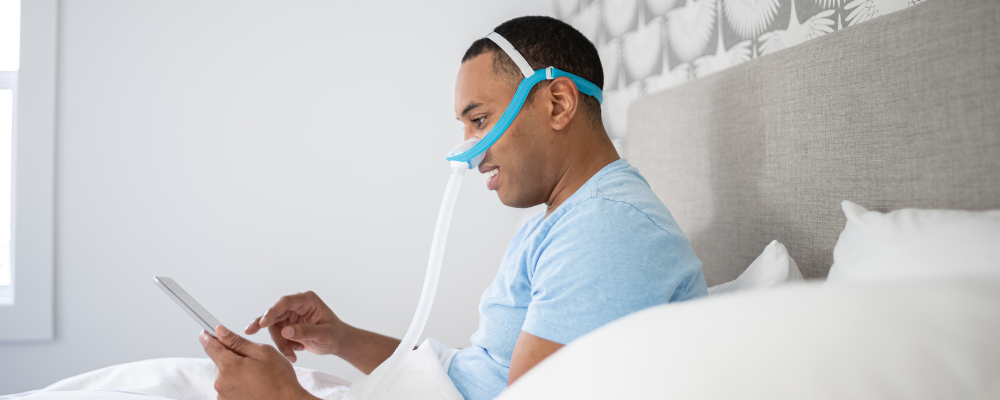We all know drinking water is an important contributor to our overall well-being. In fact, according to the CDC, water intake is critical to our health because it helps us maintain a normal body temperature and it helps prevent dehydration symptoms like unclear thinking, mood change, and overheating.
Because our bodies need water to function properly, we start to feel unwell if we don’t have enough water to drink. But could a glass of water help with more than just minor ailments, like a headache? Even more, could proper hydration help alleviate sleep apnea symptoms and lead to better sleep? To provide you with the answers, we’ve teamed up with Aeroflow Sleep Science Advisor, Dr. Carleara Weiss, to discuss the role hydration plays in sleeping well.
Why Is Hydration Important For Sleep?
The longest period of time we go without drinking water is typically while we’re sleeping. To account for this, the brain releases a hormone called vasopressin while you’re sleeping, which helps reduce water loss throughout the night. Vasopressin is also critical to helping control your blood pressure. While this is a regular process in the sleep-wake cycle, it helps give us a glimpse into why hydration is necessary for good sleep.
In fact, according to the Sleep Foundation, it works both ways: being dehydrated can cause sleep disruptions, just as poor sleep quality can lead to dehydration. More specifically, if you go to bed dehydrated, you may begin to experience symptoms like dry mouth, headache, or muscle cramps, which can make it more difficult to fall asleep. However, on the other hand, sleep problems may lead to a higher risk of dehydration. Sleep medicine experts believe this is because poor sleep may lead to disruptions with the release of vasopressin, which may make it more difficult for the body to regulate fluid loss, thus leading to dehydration.
Ultimately, the bottom line is this: it's important to hydrate for a good night’s sleep! However, it’s recommended that you stop drinking water one to two hours before your bedtime. This is because nocturia, which is the medical term for waking up in the middle of the night to urinate, can sometimes be caused by over-hydrating before bed. As a result, nocturia can lead to disruptions in the sleep cycle, and in extreme cases, can cause chronic sleep deprivation.
How Does Dehydration Affect Sleep Apnea Symptoms?
Dehydration may make sleep apnea symptoms seem worse. Some common side effects of dehydration include headaches, fatigue, dry mouth, and dizziness. With obstructive sleep apnea (OSA), symptoms like daytime sleepiness, morning headaches, and irritability are common when left untreated. Therefore, dehydration may exacerbate existing untreated obstructive sleep apnea symptoms, making your sleep apnea seem worse.
Can A CPAP Machine Dehydrate You?
No, using a CPAP machine will not directly cause dehydration. However, a common side effect of CPAP therapy is dry mouth, which can be confused with dehydration. CPAP dry mouth is often caused by an ill-fitting CPAP mask, a CPAP mask leak, or if your machine is delivering cold, dry air. This can be remedied a number of ways, but one of the most common ways is by using your CPAP machine’s humidifier. Simply fill your machine’s water chamber with distilled water before beginning your CPAP therapy each night. This simple step helps add moisture to your pressurized air, and it can effectively eliminate CPAP dry mouth.
Does Hydration Help With Sleep Apnea?
Proper hydration may help relieve some symptoms often associated with sleep apnea, such as headaches, leg cramps, and high blood pressure. However, while drinking water is great for your overall health, it is ultimately not enough to treat your sleep apnea alone. Rather, many healthcare providers recommend continuous positive airway pressure (CPAP, which is the most common treatment for sleep apnea).
If you have been diagnosed with sleep apnea, Aeroflow Sleep can help you get the PAP supplies you need through your insurance. Check your eligibility for new supplies through insurance today by filling out our online form; it only takes 5-7 minutes. Better sleep awaits!
References
“About Water and Healthier Drinks.” Centers for Disease Control and Prevention, Centers for Disease Control and Prevention, 2 Jan. 2024, www.cdc.gov/healthy-weight-growth/water-healthy-drinks/index.html.
Bryan, Lucy. “Surprising Ways Hydration Affects Your Sleep.” Edited by Dustin Cotliar, Sleep Foundation, Sleep Doctor Holdings, 7 May 2024, www.sleepfoundation.org/nutrition/hydration-and-sleep.
Thornton, Simon N., and Marie Trabalon. “Chronic dehydration is associated with obstructive sleep apnoea syndrome.” Clinical Science, vol. 128, no. 3, 3 Oct. 2014, pp. 225–225, https://doi.org/10.1042/cs20140496.
“Sleep Apnea Treatment.” National Heart Lung and Blood Institute, U.S. Department of Health and Human Services, 6 Sept. 2023, www.nhlbi.nih.gov/health/sleep-apnea/treatment.


